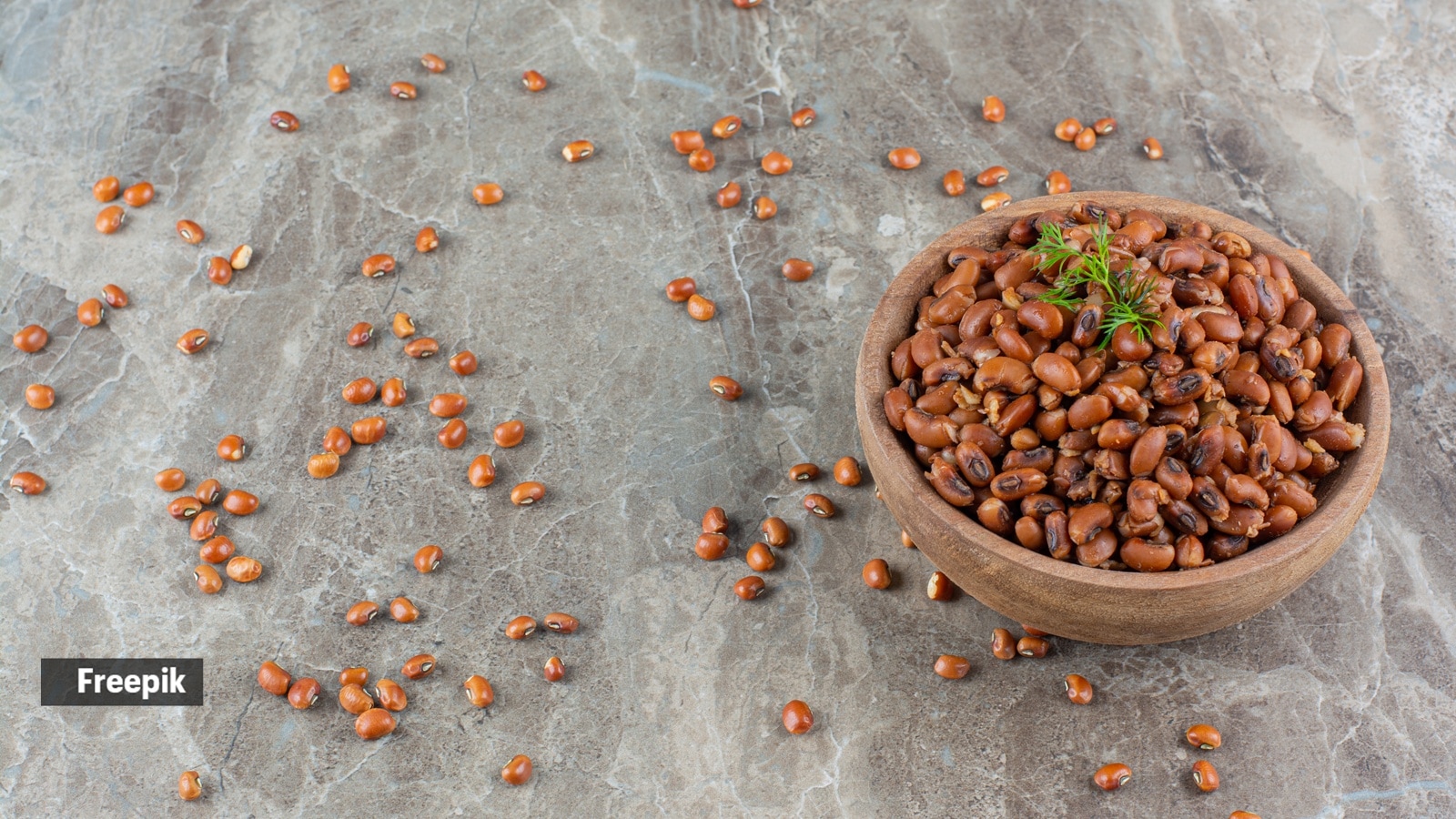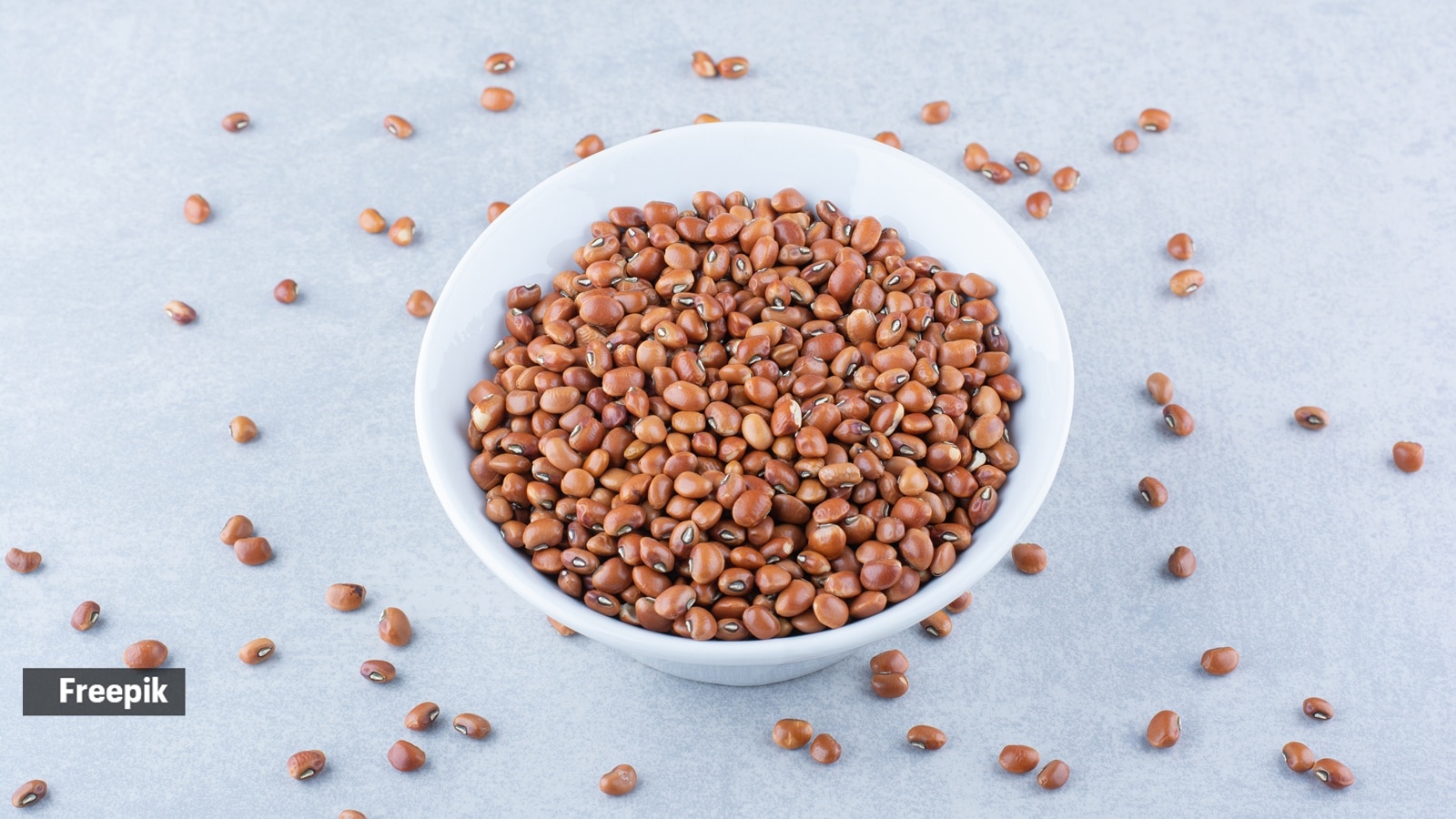From Rujuta Diwekar to Ryan Fernando, celebrity nutritionists have often highlighted the power of Indian grains and kitchen staples. The recent superfood to get the spotlight is matki — or moth beans — grown extensively in Maharashtra and its surrounding regions.
According to Edwina Raj, head of services – clinical nutrition & dietetics, Aster CMI Hospital, Bengaluru, matki is a small brown legume packed with fiber and essential minerals like magnesium and potassium.
“Matki supports heart health by lowering bad cholesterol, improving blood circulation, and helping manage blood pressure. Its high fiber content also aids in reducing the risk of heart disease by keeping arteries clear and promoting healthy digestion,” she explained.
Story continues below this ad
Pratiksha Kadam, chief dietitian, Kokilaben Dhirubhai Ambani Hospital, Navi Mumbai, said that matki contains high protein besides fiber, magnesium, potassium, and folate. “Matki’s ability to reduce LDL cholesterol, along with potassium’s ability to manage blood pressure, greatly lowers the chances of cardiovascular disease,” she explained, adding that matki’s antioxidant properties decrease oxidative stress, inflammation, and further heart function.
“Matki is especially helpful for vegetarians because it provides essential plant-based protein,” she told indianexpress.com.
Who should be careful?
Raj mentioned that matki is generally safe for most people, including those with diabetes and high blood pressure. However, people with kidney or gastrointestinal issues should consult with their dietitian. “It’s best to soak and sprout matki before cooking to enhance digestion and nutrient absorption. Incorporating matki into your daily diet, like in salads, curries, or sprouts can be a simple and tasty step toward a healthier heart,” she added.
“Most people can consume matki without issues, but those with legume allergies and IBS may need to be careful as matki may cause bloating or discomfort. Soaking the beans overnight and cooking them well helps improve digestion and reduce anti-nutrients such as phytic acid which hinders mineral absorption,” concurred Kadam.
Story continues below this ad
 Moth bean or matki is a great source of protein (Source: Freepik)
Moth bean or matki is a great source of protein (Source: Freepik)
Here’s how to soak it best
According to culinary expert and digital creator Nithyaa, soak matki for 7-8 hours or overnight and drain the water completely the next day. “Keep the drained matki covered in a warm dry place. It will soon start sprouting. Cover and keep it aside for another day or two until it is fully sprouted,” she said, suggesting using it immediately or keep in the refrigerator and use within a couple of days.
A quick recipe to make matki
Ingredients:
2 cups – Sprouted moth beans
2tbsp – Oil
A pinch of hing or asafoetida
½ tsp – Mustard seeds
½ tsp – Cumin seeds or jeera
¼ tsp – Turmeric powder
½ tsp – Red chilli powder
½ tsp – Coriander powder
½ tsp – Goda masala (a variation of garam masala)
2 tbsp – Jaggery
Few coriander leaves for garnishing
6-7 – Curry leaves
1 cup – Grated coconut (optional)
½-inch – Ginger
1 tsp- Tamarind
2 – Green chillies
Salt to taste
Recipe:
- Grind ginger, tamarind and green chillies into a fine paste. You can also add grated coconut and little water. Keep the paste aside.
- In a small pressure cooker, keep the matki immersed in water and pressure cook it for one whistle.
- Once the matki is fully cooked and the pressure is cooled down, drain the water. Keep the cooked matki aside.
- In a pan, heat oil on a medium flame. Add mustard seeds, hing, cumin and curry leaves. Allow it to splutter and then add the ground paste and mix well.
- Cook on a low flame for a few minutes. Add turmeric, red chilli powder, coriander powder, salt and goda masala or garam masala. Give it a good mix.
- Add little water and adjust the consistency. Now add jaggery and mix well. Cook on medium flame for 2-3 minutes or till the curry starts simmering. Switch off the flame and garnish with chopped coriander leaves. Before serving, squeeze some lemon.
DISCLAIMER: This article is based on information from the public domain and/or the experts we spoke to. Always consult your health practitioner before starting any routine.

